If you’re researching how to hire a contractor, you’re in the right place! Between checking reviews, Yelp, Google, Nextdoor, Facebook groups, and even personal recommendations, there’s almost too much information out there to sift through. Plus, who can you trust? Here’s how to focus on critical info, so you can hire a contractor you’ll love.

Hire a Contractor: TOPICS in This Post
Why Listen to Us?
Where to Research Contractors
Getting Estimates
How to Choose the Best One
Big Remodels – How to Hire a General Contractor
Small Jobs – Hiring a Trade-Specific Contractor
7 Pro Tips and Warnings
Be a Good Neighbor: Write a Review
Why Listen to Us?
In addition to years of experience hiring contractors to work on our homes, Wyatt works professionally in the construction industry. He manages the construction of multi-story apartment buildings for a general contractor in the Denver metro area. He has hired and supervised countless subcontractors over the years and knows the of tricks of the trade(s).
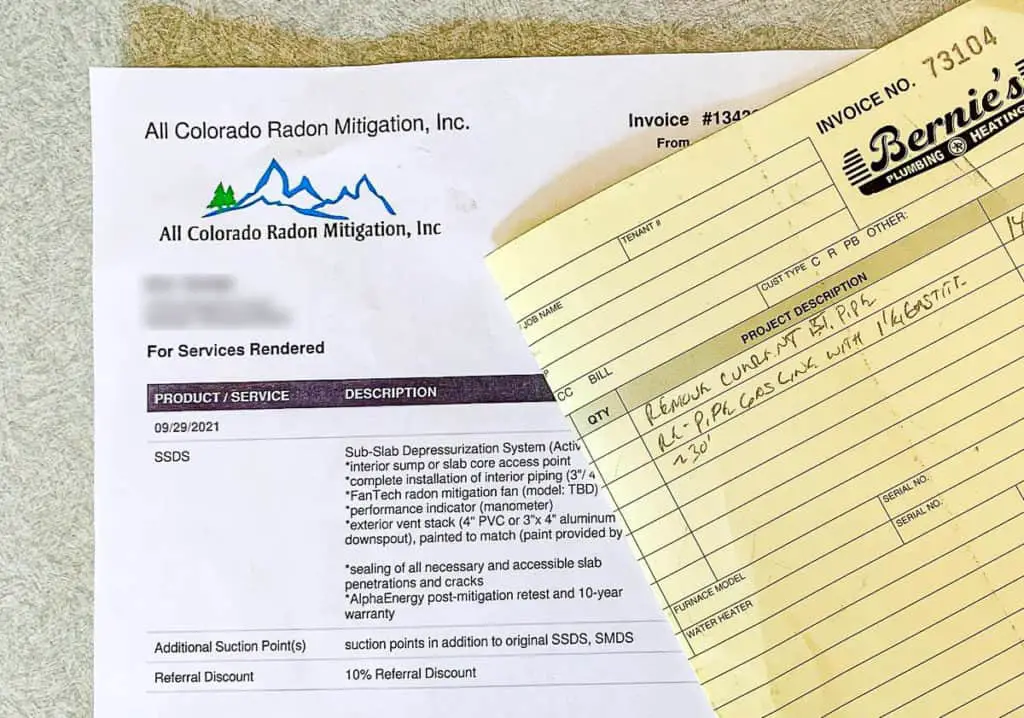
Where to Research Contractors
Start locally
- Ask your neighbors for suggestions (but still vet the contractors). This is especially helpful if your homes were built in the same era. If you live in an older home, you might need a more specialized pro for the work.
- Ask local friends for suggestions, based on their personal experiences.
- If you know a real estate agent, they probably have a list of go-to contractors to refer to clients. My brokerage even keeps a master list for agents to reference.
Trust, but Verify (Online)
- Nextdoor and local Facebook groups are great forums to check.
- Look into Yelp and Google reviews to get more input.
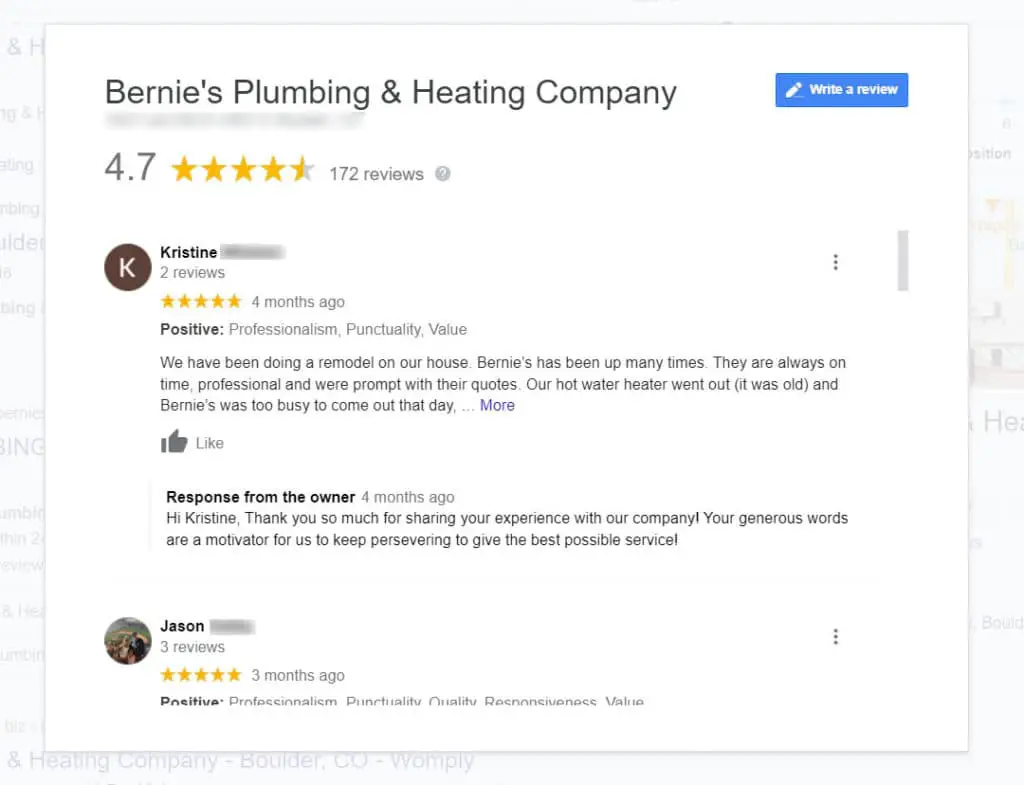
Getting Estimates
- If possible, start with a list of 10+ contractors based on recommendations and reviews
- You’ll probably call 7-10 businesses just to schedule appointments (they might be booked out, unresponsive, or charge for quotes (DON’T PAY FOR AN ESTIMATE – read why not here))
- Aim to get 3-5 bids or quotes
Yes, seriously! Start with a long list, so you can end with 3-5 good estimates.
There are so many reviews out in the world, it’s hard to sift through and determine a) which are legit and b) which are useful. Don’t go by “5 stars” alone – read the comments reviewers have taken the time to write. It’s worth thinking critically about what reviewers have to say, and how much you trust their opinion.
Let me tell you a story.
I did a tiny bit of research to hire a painter at our last house, which included asking my neighbor for her painter’s name. She highly recommended their painter and said he was cheap and good. Even though I couldn’t find any info about him online, I still met him, liked him, and hired him to paint the house. As it turns out, he was a much better salesman than painter, and we were disappointed with his work. Womp womp. When I mentioned this to my former neighbor, she said, “Oh yeah, I noticed some spots he missed on the ceiling.” Lesson learned? Dig deeper into checking references/reviews.
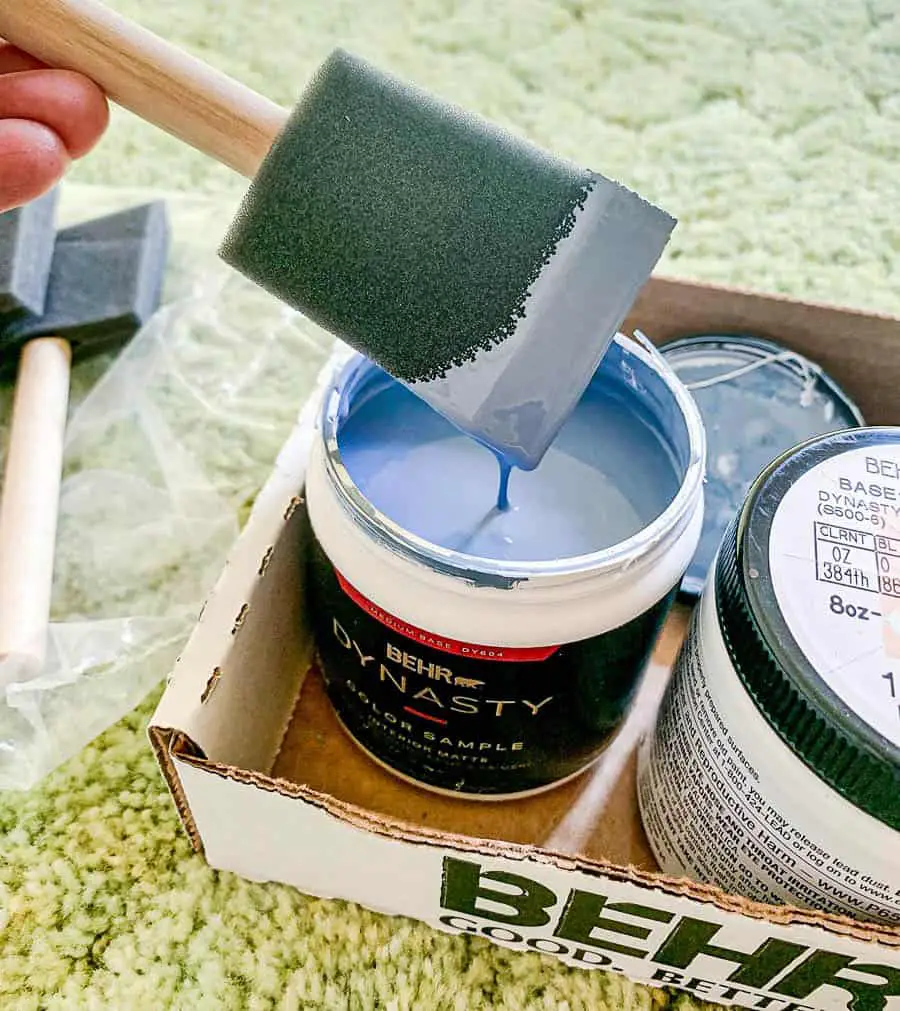
How to Choose – Don’t Just Pick the Cheapest
Choose a contractor who treats you with respect from the very beginning. Aside from the numbers, it’s critical to hire a contractor you actually like. You’ll need to communicate clearly with the person doing the work (or the supervisor). Also, look for a company you think will handle conflict professionally. It’s just reasonable to expect that you’ll ask them to change, fix, revise, or redo a portion of the work once the project is underway, because nothing runs perfectly from start to finish.
Check with the Better Business Bureau (BBB) to read any complaints that have been filed. Consider how many you find and when they were filed. Personally, I wouldn’t worry about a single, older complaint.
Before you hire someone, check their license, if your contractor is in a licensed field. You can ask for their license number and call your local licensing agency to verify that it is active.
Last, do your project research first. As a woman, I find that some contractors treat me very differently than they treat Wyatt. Once I throw around some trade lingo to show that I know what they are talking about, the whole game changes and I am taken seriously. So, don’t admit when you know nothing – read a diagram and know the component names before you interview a contractor. Plus, some contractors will take advantage of oblivious home owners; you’ll get a better result when you’re invested in the work being done.
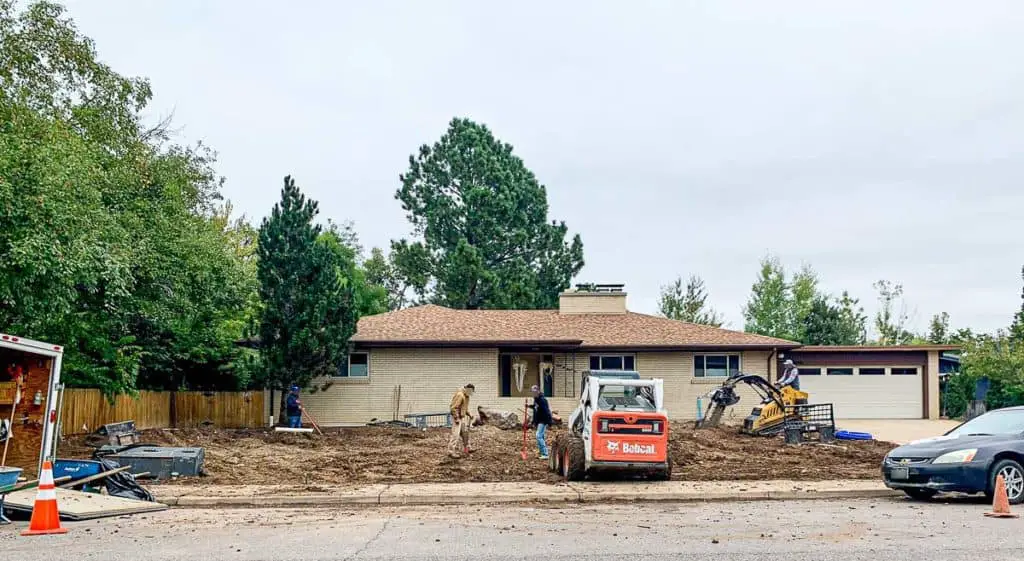
Choosing a General Contractor for a Big Remodel
All the above advice applies here, but it’s a big task to research a general contractor (GC) for a large project, like a kitchen remodel. Rather than reinvent the wheel, I’ll send you over to this thorough blog post on hiring a contractor. Brittany offers great advice and a list of questions you can ask potential general contractors. She is a licensed GC, herself.
If you have a general contractor running a big project, they will typically hire the subcontractors.

Hiring a Specific Trade Contractor
Here’s where we have a lot of experience. Because Wyatt is typically our GC, we only hire specific trades, or subcontractors. Here are topics to discuss:
- Cost
- Timeline – When can work start? How long will the project take?
- Materials* – Are materials currently available to complete the project?
- Permits – If needed, who will obtain the permit? Here’s a good overview on permits.
- Inspection – If you need to pull a permit, the work might also need to pass an inspection.
*Materials are still impacted by COVID-related delays across many industries. Make sure materials are currently available and on-site before starting a project!
How to Install Groutable Vinyl Floor Tile
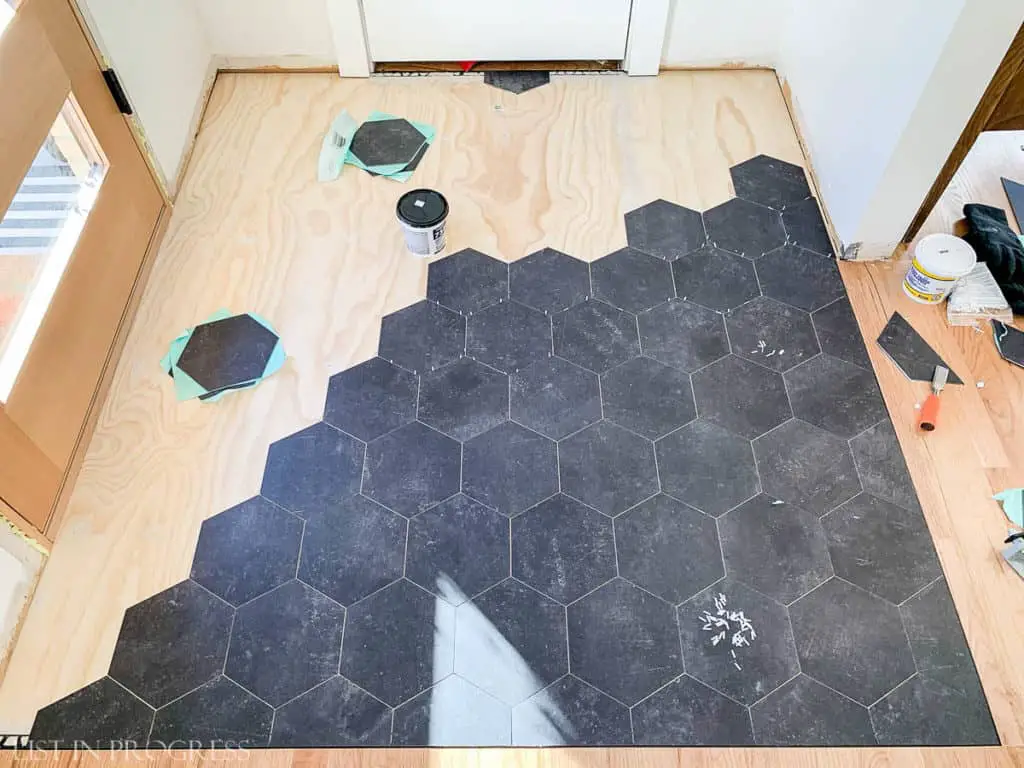
7 Pro Tips and Warnings
Tips from our experience, and specifically from Wyatt, who manages construction professionally:
1 – Do Not Pay Until Work is Complete
Truly, money is your main negotiating tool. Do not pay the entire cost until the work is finished – and you’re satisfied. Once you pay, people tend to disappear! Even if a contractor has promised to return and complete the work, they might not – it happens all the time. Withholding full payment is your only leverage.
It can feel uncomfortable, but stay strong. It’s your money and you are the customer.
A deposit is fine, but do not hire anyone who insists on being fully paid in advance.
Another true story:
We had our roof replaced a couple of years ago. I vetted the contractors and we were pleased with the work. However, one of them accidently drove over a can of black spray paint in our driveway, which caused it to explode, leaving a huge stain on the concrete. See below! Before we paid for the work, we insisted on multiple attempts by the company to remove the stain. Because this is a good roofing company, they did not object or argue, and the guy who was sent to our house worked hard to make it right. It all worked out, we paid, and I still recommend those roofers.
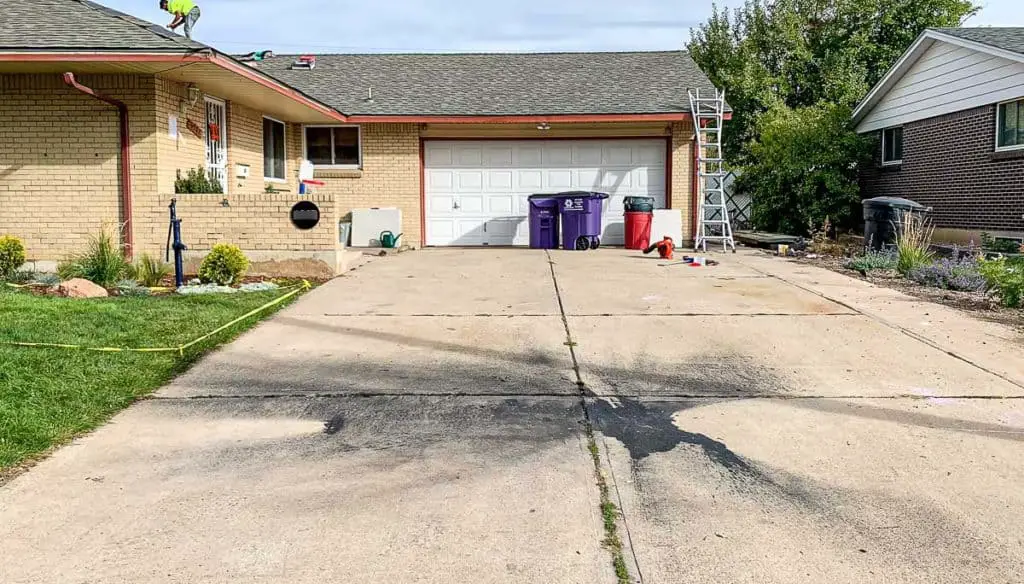
2 – Do Not Pay for Estimates
Do not pay for a quote. Some industries might try to make this the new norm, but a good business will offer a free, “no strings” estimate. The reality is, once you’ve paid a dispatch fee, or however they label it, you’re more likely to hire that company, rather than waste your money. The flip side is that the contractor is less motivated to impress you, because they realize you will probably hire them in order to recoup the fee. It’s the path of least resistance for the customer, but is it the best choice? Nope.
3 – Ask for a Cash Discount
It’s worth asking contractors if they are able to offer a cash discount. If paying in cash is easier for them to manage, they might pass the savings on to you. Why not ask?
4 – Expect Contractors to Clean Up
The industry standard on a construction jobsite is that contractors should clean up after themselves. They should not leave a mess behind and should leave the site in the same or better condition than it started. Expect the same standards of contractors working on your home. This includes removing debris from your home, not filling up your trash can.

5 – Insist on Careful Contractors
Sometimes workers are used to tromping around in heavy work boots and scattering their tools on the floor. Insisting that contractors treat your home with care can feel uncomfortable. But here’s the added bonus – when you push these details from the start, contractors will take your job more seriously and often perform better. You’re more likely to be pleased with the end result of the work.
Here’s how to convey that you want workers to be clean and careful in your space.
- Clearly communicate your expectations up front:
- “Please be careful not to damage the paint”
- “Please cover the carpet”
- “Watch out for that old/rusty/fragile/delicate…”
- Clean up before work begins! If your space is messy or dirty, contractors will just follow suit.
- Remove delicate or precious items from the workspace, rather than risk damage.
- Insist on floor coverings if you’ll have workers walking in and out of your house. They should have canvas or cloth in their work vehicles, and many will lay down floor coverings before you even ask.
- Push back, if needed. Show that you’re watching and mean business with your requests.
Here’s a fun story:
I was called a b**ch for insisting that someone cover the slate tile floors before dragging a dishwasher around my kitchen. Fact. Despite that, I still insisted, and you should, too. (That was a laborer sent from a box store – out of my hiring/firing control.)
Here’s a Tour of Our First House
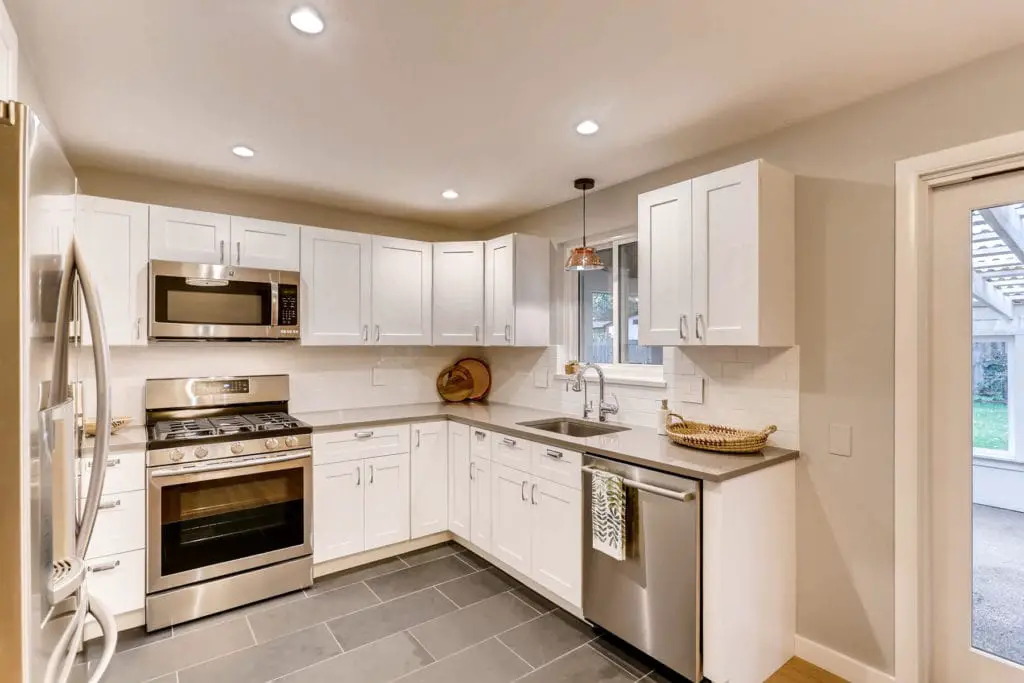
6 – Take Before and After Photos
Even if you’re not a blogger, there are benefits to taking photos. Especially plenty of BEFORE photos.
If something goes wrong, needs to be fixed or relocated, or you’re debating with a contractor about payment, you might need photo evidence. Arguments dry up when you can show proof.
7 – Call The Boss if Necessary
If you’re dealing with a lower level employee and not getting the results you want, don’t get into a power struggle. Call the boss instead. They understand that their business reputation – and payment – depend on your satisfaction with the work. A good company will ask, “How can we make this right?” It often comes down to money, and it will be easier to resolve with decision-makers.

Be a Good Neighbor – Write a Review
Pay it forward. Businesses appreciate your honest feedback, and future customers will too. For as heavily as I rely on reviews, I am not great at remembering to write them. I am trying to improve. Anyone else?
Do you have other tips for hiring a great contractor? What has worked well for you in the past? Share your knowledge below, please!
Good luck when hiring the next person to work on your home. I hope you find this post helpful.
More DIY Remodeling Tips from List in Progress

1 – How to Childproof Before You Remodel
2 – Meal Ideas to Survive a Kitchen Remodel
3 – How to Plan a Reno and Stay Sane
4 – How to Save Money on a DIY Kitchen Remodel






